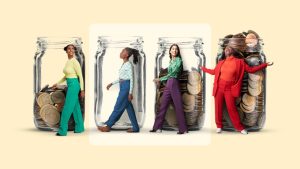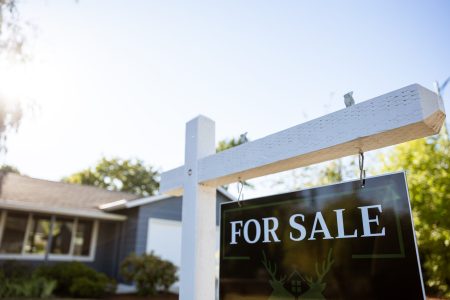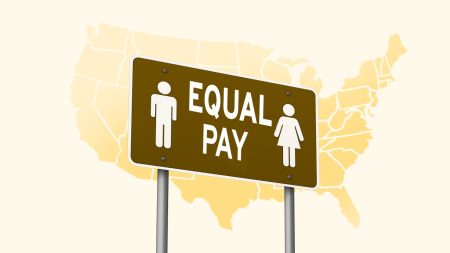Key takeaways
- If you need money now but can’t get a loan, products like emergency loans and payday loans may be appealing.
- These options may come with higher interest rates and shorter repayment timelines than a standard personal loan.
- Payday loans and some no-credit-check loans can have fees that translate to triple-digit interest rates, meaning they should only be used as a last resort.
Emergency loans, bad credit loans, no-credit-check loans and payday loans are easier to get than traditional personal loans. Some lenders promise ultra-fast funding or cater to borrowers across the credit spectrum with less restrictive eligibility requirements.
However, these easy loans often come with higher-than-average interest rates and unfavorable terms. This is especially true of no-credit-check and payday loans, which should be avoided whenever possible.
What are the easiest personal loans to get?
If used carefully, alternative loans can help meet urgent financial needs in tough situations. They can also be the easiest loans to get. But it’s important to consider the long-term financial risks, like rapid, high-interest debt accrual or significant credit damage. Knowing the risks before you sign can empower you to make the right decision for your current and future finances. These are the easiest loans to get, especially when you have trouble qualifying for traditional loans.
Emergency loans
An emergency loan helps you cover unexpected expenses, such as medical bills or car repair costs. Lenders typically have low borrowing minimums of $1,000, and some offer loan amounts of up to $50,000. Although specific funding timelines vary by lender, some deposit funds the same day you’re approved.
There are multiple emergency loan types. Some are traditional personal loans that offer faster funding. Others include payday and title loans, but beware — these are predatory lending products that are often marketed as emergency loans.
Emergency loans generally come with higher interest rates than other forms of lending. This is especially likely if you have a poor credit score, a large amount of debt or a low or unstable income. Emergency loan rates from online lenders may reach 35.99 percent, but payday loans can have rates up to 600 percent or higher.
Risks
If you don’t have a good credit score (at least 670) and a solid income, your loan may come with high rates and fees. Look for a loan with an interest rate below 36 percent.
Where to get an emergency loan
Here are a few Bankrate-reviewed personal loan lenders that offer emergency loans.
| Lender | APR range | Loan amounts | Funding timeline | Minimum credit score |
| Rocket Loans | 8.01%-29.99% | $2,000–$45,000 | As soon as the same day | 640 |
| LightStream | 6.49%-25.29% (with autopay) | $5,000–$100,000 | As soon as the same day | 670 |
| LendingPoint | 7.99%-35.99% | $1,000–$36,500 | As soon as the next business day | 600 |
The best emergency loans of 2025
If you need quick cash to cover an emergency expense, consider Bankrate’s picks for the best emergency loans.
Learn more
Bad credit loans
A bad credit loan is a personal loan for borrowers with less-than-stellar credit or minimal credit history. Although bad credit loan requirements vary by lender, you’ll typically need a credit score above 500.
Since the lender assumes additional risk by lending to borrowers with bad credit, you may not get approved for the amount you need. Also, expect to be charged origination fees of up to 12 percent of the loan amount. You may not qualify for the longest loan terms, but your term will be at least 12 months — far longer than the two weeks you have to repay a payday loan.
These loans are still a better option than payday loans as long as they’re offered by regulated institutions, including online lenders, credit unions and community banks.
Risks
If you have fair or poor credit, you will likely face rates closer to the lender’s maximum, rather than their minimum. Failure to make on-time payments will damage your credit score. On the plus side, keeping up with payments should help you improve your credit score.
Where to get a bad credit loan
Check out Bankrate’s reviews of these lenders before applying.
| Lender | APR range | Loan amounts | Funding timeline | Minimum credit score |
| Avant | 9.95%-35.99% | $2,000–$35,000 | As soon as the next business day | 550 |
| Upstart | 6.60%-35.99% | $1,000–$50,000 | As soon as the next business day | 300 |
| OneMain Financial | 18.00%-35.99% | $1,500–$20,000 | As soon as the same day | None |

The best personal loans for bad credit in 2025
If you need to borrow money but you don’t have great credit, consider Bankrate’s picks for the best bad credit loans.
Learn more
No-credit-check loans
If you don’t meet the lender’s minimum credit score requirement, getting a no-credit-check loan is a possible alternative. But exercise caution — these loans have high fees that translate to a triple-digit APR.
No-credit-check loans should be treated as a last resort due to the potential risk involved. In addition to the substantial fees, no-credit-check loans often have short repayment periods that make it difficult to manage.
Risks
You risk incurring triple-digit interest rates and high fees with a no-credit-check loan. Failing to repay could trap you in growing debt.
Payday loans
Payday loans are typically $500 or less and are designed to be repaid by your next pay period. Most payday lenders don’t check your credit, so these are among the easiest loans to get approved for. But beware: These loans come with serious drawbacks, including sky-high interest rates and exorbitant fees.
Interest rates on a 14-day payday loan can be more than 600 percent in some states — compare that to the maximum rate of 36 percent on personal loans. The ease of approval makes it possible to borrow beyond your means and get trapped in a cycle of debt. In fact, the Consumer Financial Protection Bureau found that 75 percent of the fees collected by payday lenders are from borrowers with more than 10 loans.
Risks
Payday loans pose a serious risk to your financial health. Due to the short repayment term, excessive fees and high interest rates, only consider these loans if you’ve exhausted all of your other options and are certain you can pay back the balance.
Why an easy loan can make your life hard
Getting approved for an easy loan may yield temporary financial relief. But these debt products often become more costly than borrowers initially imagined, leading to long-term financial distress. Falling behind on loan payments could also mean adverse credit reporting, damaging your credit score.
For starters, easy loans generally come with exorbitant interest rates and fees, which means you’ll pay hundreds or thousands of dollars in interest over the loan term. Although some easy loans don’t require a credit check, they may come with extremely short repayment periods that are difficult to manage and trap you in a cycle of debt.
Alternatives to easy loans
If you want to avoid the potential borrowing costs associated with the riskier loan options above, here are some alternatives to consider.
Local banks and credit unions
If you’re a member of a community bank or local credit union, contact your institution to determine whether you qualify for a personal loan. You may receive better rates and terms since you have an existing relationship with the institution.
Select federal credit unions offer unsecured payday alternative loans (PALs). Although the interest rate is based on your credit score, rates are capped at just 28 percent. These loans are easier to get approved for than traditional loans, but only come with maximum amounts of $2,000. To borrow a PAL, you must be a member of a credit union that offers this product.
Local charities and nonprofits
Check with your local Chamber of Commerce or library, or dial 211 to see if grants are available in your area. Your income level may qualify you for federal or state rental or food assistance programs. If you need help paying for rent, the U.S. Department of Housing and Urban Development may offer a rental assistance program in your area.
Payment plans
Can’t afford to pay for a phone bill or medical bill in full? Ask the company if you can establish a payment plan. Although you’ll probably be charged an additional fee or interest, it may cost less than getting a loan. While you won’t have to undergo a credit check, you may still have to apply and be approved.
Paycheck advances
If you need to pay for an expense immediately but don’t get paid until next week, ask your employer for a paycheck advance. You’ll be borrowing money from yourself, which prevents you from racking up debt and having to repay interest and fees to a lender. But, of course, it means your next paycheck will be smaller, potentially impacting your budget.
If your employer doesn’t offer advances, consider using a third-party payday advance app. These apps allow you to access a portion of your paycheck early for a small fee (or for free). Keep in mind that you’ll likely need to repay the borrowed amount from your next paycheck. And be careful not to use these advances to support a pattern of overspending. The Center for Responsible Lending found that more than one in four app users (27 percent) take out more than 25 advances a year.
Loan or hardship distribution from your 401(k) plan
If you need more money than you could get with a paycheck advance, consider asking for a 401(k) loan or hardship assistance. There’s no credit check, and you can access the funds quickly in most cases.
You can expect to pay interest on the loan amount even though you’re borrowing from yourself, but rates are reasonably low. Any interest you pay is deposited back into your retirement account, but on a post-tax basis. But if you lose or leave your job while carrying a balance, you’ll need to repay it by the following tax day.
Borrow money from family or friends
If you have a loved one who is willing and able to lend you money, you may avoid paying interest and can collaborate on repayment options. Be sure to get the terms of your agreement in writing and repay the loan as promised to avoid damaging your personal relationship.
Credit counseling
Credit counseling isn’t a borrowing option, but it can be another way to tackle your debt. You work with a certified credit counselor, who can help you obtain copies of your credit reports, create a budget and establish a debt management plan. The best credit counseling services may even be able to negotiate your payments down so you can eliminate debt faster. However, there may be fees for this service, so be sure to check total costs before signing up.
Bottom line
Before you take out an easy loan, make sure you explore all of your borrowing options. When considering the easiest personal loans, do your research and weigh each alternative’s benefits and drawbacks to decide which makes the most financial sense. Before turning to a payday loan or similar option, try prequalifying for bad credit personal loans with several lenders to compare potential rates.
Regardless of your choice, assess your spending plan and only borrow what you can afford to pay back promptly.
Frequently asked questions about easy loans
Read the full article here









